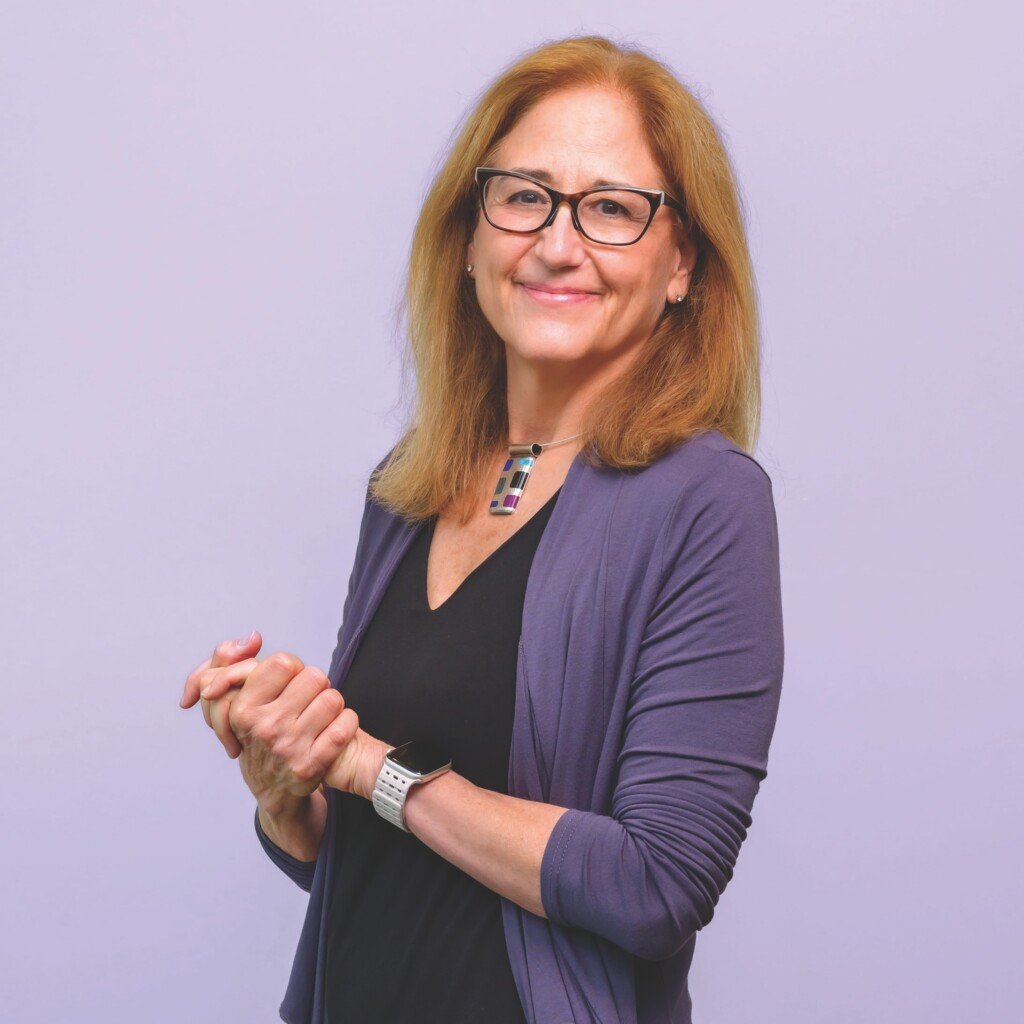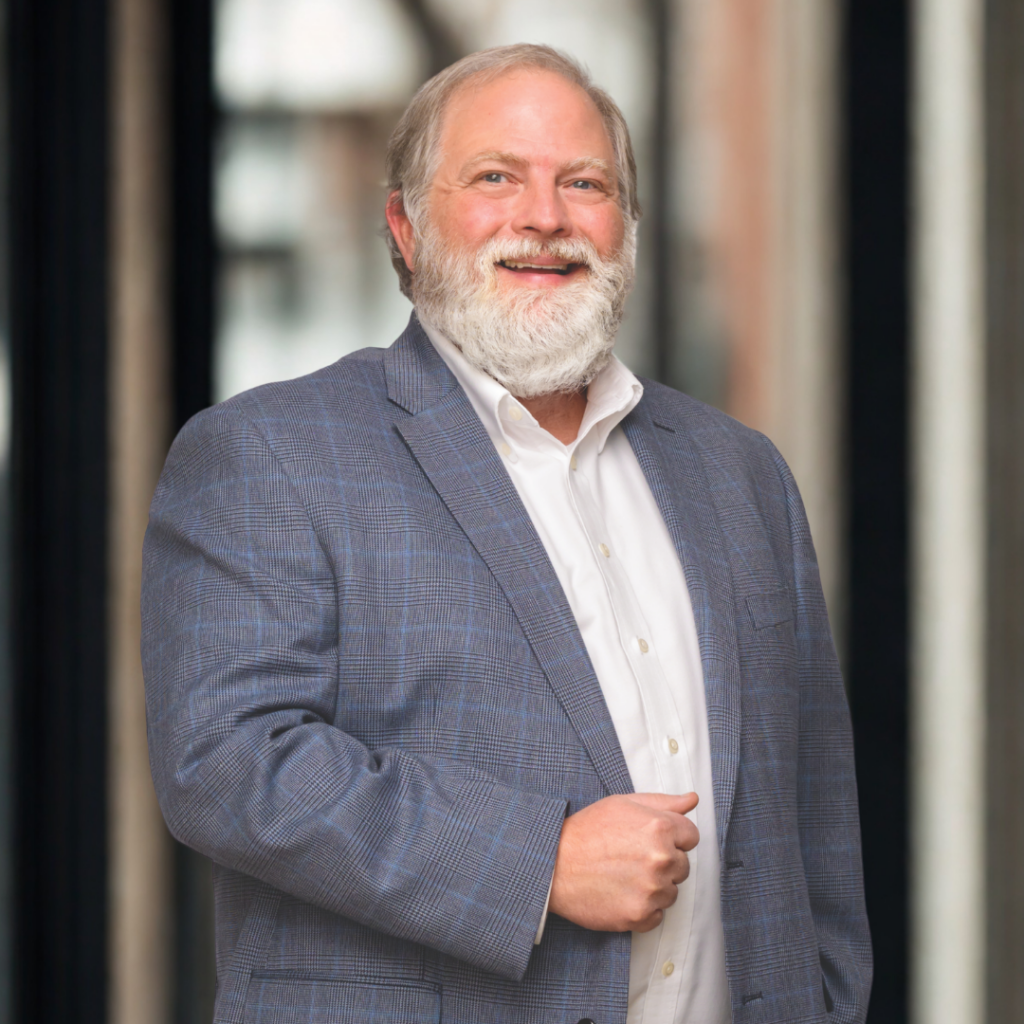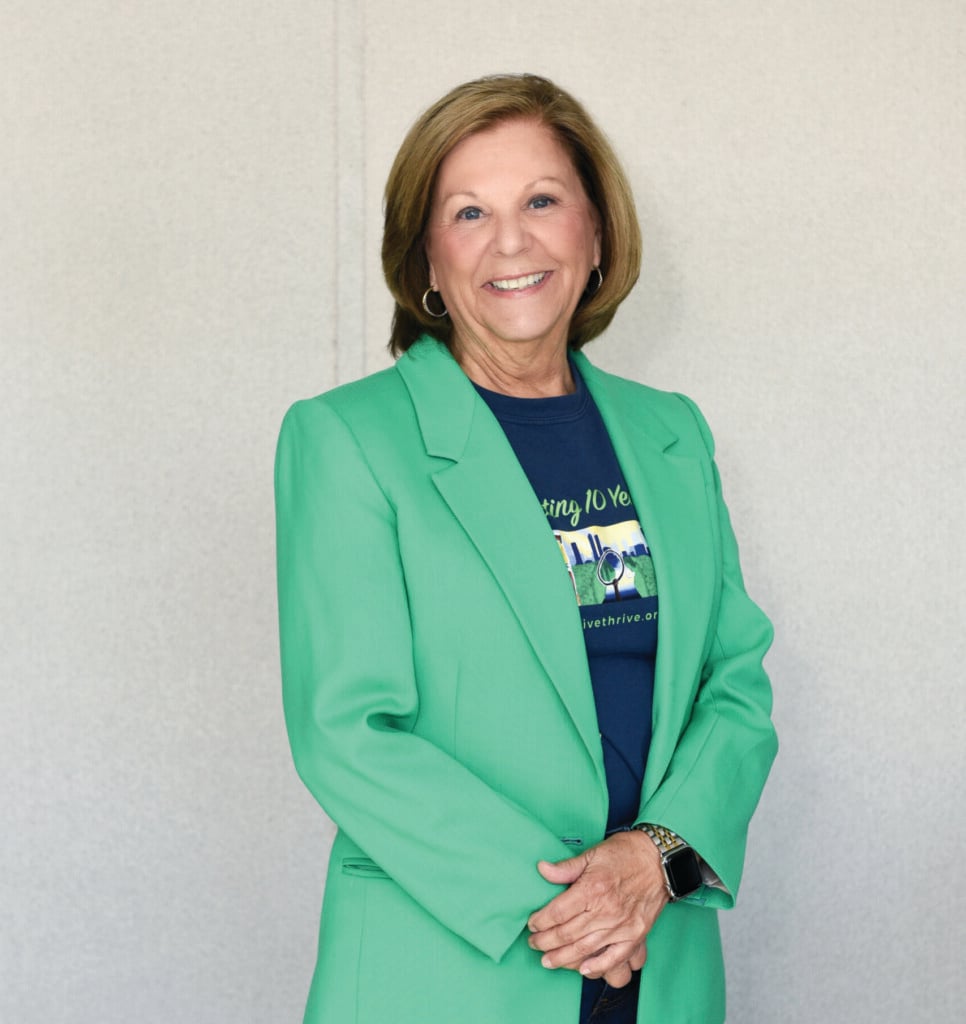Catching up with… Peggy Whitlow-Ratcliffe
Founder and Executive Director, Live Thrive
Peggy Whitlow Ratcliffe is the founder and executive director of Live Thrive, an Atlanta nonprofit launched in 2010 to promote healthy, sustainable environmental practices. It operates the Center for Hard to Recycle Materials, known as CHaRM. Following are edited excerpts from an interview.
 What inspired you to start Live Thrive and open CHaRM?
What inspired you to start Live Thrive and open CHaRM?
 After my parents passed away, I was tasked with cleaning out their home. My dad was an avid gardener and had pesticides and herbicides in his garden shed. All those scary bottles with skulls and crossbones from the 1960s, ’70s and ’80s – I knew they should not go in a curbside bin but didn’t know where they could go.
After my parents passed away, I was tasked with cleaning out their home. My dad was an avid gardener and had pesticides and herbicides in his garden shed. All those scary bottles with skulls and crossbones from the 1960s, ’70s and ’80s – I knew they should not go in a curbside bin but didn’t know where they could go.
That was really what started my mission – finding out what to do with these materials. And so many people are in the same position I was in. Unfortunately, sometime in your life, you have to go through the process of cleaning out someone else’s home. So in 2010, I organized the city of Atlanta’s first household hazardous waste collection, which was overwhelmingly responded to by the residents. Everybody has paint, paint thinner or pesticides in their crawlspace, basement or garage!
 What kinds of jobs has Live Thrive helped create?
What kinds of jobs has Live Thrive helped create?
 There is an over $3 billion a year opportunity for this state supporting a circular economy. That’s really what recycling is. Just regular processing of the cardboard, aluminum and glass is about 20,000 jobs, which is incredible. The carpet industry … also recycles [plastic bottles] and provides jobs.
There is an over $3 billion a year opportunity for this state supporting a circular economy. That’s really what recycling is. Just regular processing of the cardboard, aluminum and glass is about 20,000 jobs, which is incredible. The carpet industry … also recycles [plastic bottles] and provides jobs.
At CHaRM, we have 22 employees. We’ve grown from two during the first three years to now 22 because we have two locations, which, again, just reinforces that if people are given the opportunity and the knowledge, they’re going to recycle in the right way. They want to do the right thing.
 What policy changes would help Georgians reduce waste and recycle more effectively?
What policy changes would help Georgians reduce waste and recycle more effectively?
 Consistent and transparent messaging from municipalities will definitely increase participation and cut down on contamination. And education will help, so we all know what can and cannot go into our curbside bins. Even just messaging not to put electronics and batteries in our curbside bin would make a huge difference.
Consistent and transparent messaging from municipalities will definitely increase participation and cut down on contamination. And education will help, so we all know what can and cannot go into our curbside bins. Even just messaging not to put electronics and batteries in our curbside bin would make a huge difference.
 What are some measurable impacts Live Thrive has had on waste reduction?
What are some measurable impacts Live Thrive has had on waste reduction?
 Opening the first Center For Hard To Recycle Materials in 2015 was incredible. We’ve been there for 10 years now.
Opening the first Center For Hard To Recycle Materials in 2015 was incredible. We’ve been there for 10 years now.
In the first year, we had 5,000 visitors. And I thought, this is just amazing! Last year, we had 75,000 visitors. So it’s really that “if you build it, they will come” idea. I also think it shows that people really do want to do the right thing. They just have to have the knowledge and a location to fulfill that.
 How do you see Live Thrive contributing to a more resilient and sustainable economy?
How do you see Live Thrive contributing to a more resilient and sustainable economy?
 The more people we can inform, such as increasing our reach through an opportunity like this, the more we can make a difference. Education is just as important as collecting these materials. It’s making sure people know it’s not just about being a good Earth steward.
The more people we can inform, such as increasing our reach through an opportunity like this, the more we can make a difference. Education is just as important as collecting these materials. It’s making sure people know it’s not just about being a good Earth steward.
[Live Thrive and CHaRM] are also supporting the local economy by supporting all these companies [that] need these materials. When you talk to people about dollars and cents it seems to sink in a little more than just telling them they’re a good person for recycling.
We are working on a new project with Atlanta Housing. It’s one of the Choice Neighborhood programs. Bowen Homes is being revitalized. [Atlanta Housing and its public-private partners are] building … homes in affordable housing ranges. [Live Thrive] will be the environmental leg of that, having an education center as well as a community center and recycling center there.
We work a lot with schools, supporting them in their STEAM and STEM programs and helping them get more funding for those programs. We also try to be involved with people and areas that aren’t aware of [our] importance and what recycling can do for our local economy. 
Editor’s Note: You can book an appointment to one of the CHaRM facilities by visiting the Live Thrive website.






